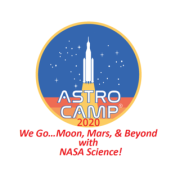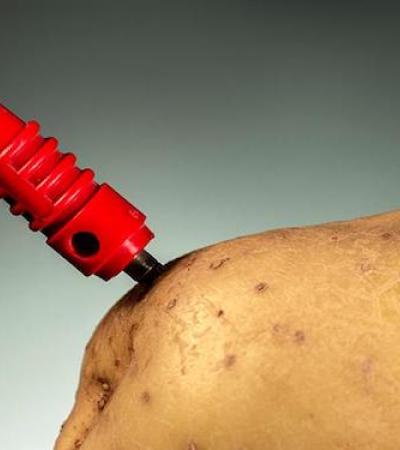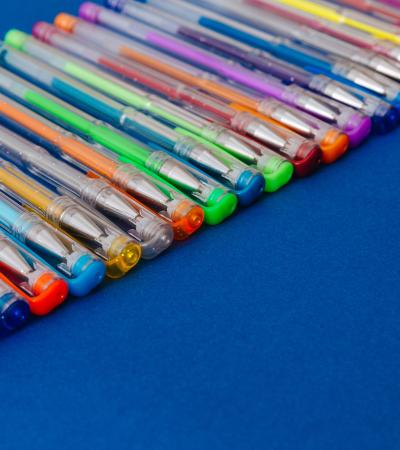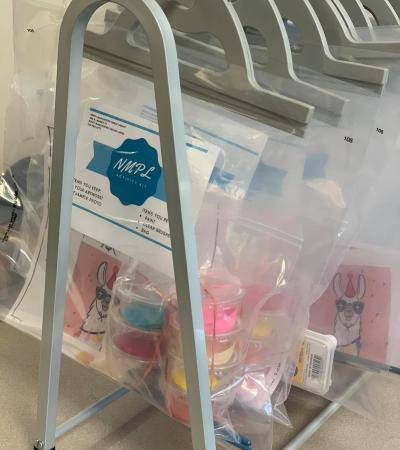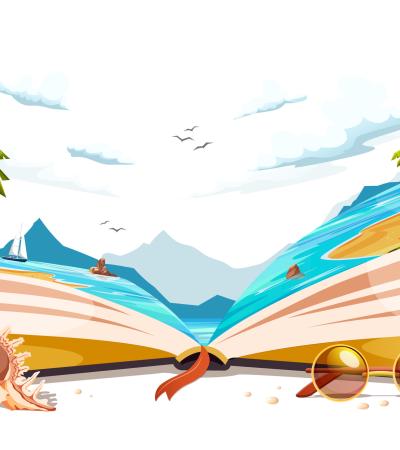During the COVID-19 pandemic, the Grand Forks Public Library pivoted our STEM programming from in-person activities to virtual (our first virtual STEM program!). Using the NASA ASTRO CAMP® Community Partners Program (ACCP) and Beanstack, we’ve planned a five-session virtual NASA ASTRO CAMP®.
Families will be able to pick up kits during the week of July 1. Then videos will be rolled out throughout the month of July that cover activities using materials from the kits. All of the videos were filmed at home by Delores, our STEM coordinator. She demonstrates the activities described in the kits so campers can follow along at home.
There are two virtual camps: one for grades K-2 and the other for grades 3-6. Because the program must be interactive, we are planning online classes for the at-home activities.
This series was created using a NASA @ My Library grant.
Advanced Planning
We began by attending a virtual NASA ASTRO CAMP® training, and then chose activities that would work well online.
We use Beanstack for our summer reading program and felt it would be a good platform for our STEM program. Delores Clark, our STEM coordinator, tested and adapted all the activities beforehand. The selected activities use easily accessible and affordable supplies. She also added NASA@ My Library activities we have done at our library that were not included in NASA ASTRO CAMP®.
We have partnerships with the Dakota Science Center and the University of North Dakota that will be especially helpful for this program. Four subject matter experts from UND will participate in the live program and provide short videos on dark matter, auroras, stars and greenhouse gases.
We are also working with a NASA-JPL Solar System Ambassador for North Dakota and will receive some assistance from the North Dakota NASA Space Grant Consortium. The virtual meetings will be done through Zoom and hosted by Delores.
Supplies for the five sessions will be available for curbside pickup before the program begins on July 1.
We are planning for 30 participants per age group (total 60), but we will take as many participants that want to attend.
Marketing
We plan on marketing through our Facebook page. We will be hosting a Facebook Live event on Tuesday, June 30, at 1 p.m. with a speaker from NASA's Artemis Program to help kick off the camp.
Programming partners will also help promote the program by sharing our posts, including the Dakota Science Center and the University of North Dakota College of Engineering and Mines. We also plan on marketing the program via email to people on our STEM e-list.
Budgeting
What we bought for each activity:
- Mission Patch and Rocket: wide straws, regular straws
- Astrophysics: transparent Filters, Diffraction Grating (13,500 lines per inch)
- Earth Science: dowels, crepe streamers, gumdrops
- Heliophysics: oil pastel crayons, chenille stems or map pins
- Planetary Science: multicolor crayons, oxide powder and register tape
- Other materials: highlighters (three colors), cardstock, printed templates, poster board, cardboard tubes, aluminum foil and toothpicks
For 30 students, the oil pastels, oxide powder, diffraction grating and transparent filters cost around $20 each. All other supplies were more affordable and under $20.
The total cost of the both programs (planning for 60 students) is between $250 and $300.
Day-of-event Activity
Below is a description of the activities we will offer for each week's session. Students will be asked to have the materials for each lesson at hand.
Week 1: Mission Patch (July 1-5)
- Activities: Each family will design a Mission Patch and make a Straw Rocket
- Guest speaker: North Dakota NASA Space Grant Consortium
Week 2: Astrophysics (July 6-12)
- Activities:
- K-2: Sound Waves (video)
- K-2: Dark Matter Grades 3-6 – Hidden Messages -Light Filters
- Grades 3-6: Spectroscope (video)
- Guest speakers: Dr. Dean Smith, UND Physics & Astrophysics and Chris Milford, NASA-JPL Solar System Ambassador for North Dakota
Week 3: Earth Science (July 13-19)
- Activities:
- K-2: Wind Sock (video)
- Grades 3-6: Greenhouse Gases
- Guest Speaker: Dr. Gretchen Mullendore, UND Atmospheric Sciences
Week 4: Heliophysics (July 20-26)
- Activities:
- K-2: Pastel Aurora (video)
- Grades 3-6: Star Finder & Pinwheel Galaxy
- Guest Speakers: Dr. Dean Smith, UND Physics & Astrophysics, and Chris Milford, NASA-JPL Solar System Ambassador for North Dakota
Week 5: Planetary Unit (July 27-31)
- Activities:
- K-2: Color of Mars (Video)
- Grades 3-6: Pocket Solar System & Planet Distances
- Guest Speaker: Dr. Mike Gaffey, UND Chester Fritz Distinguished Professor, Space Studies
Program Execution
We posted instructions for each activity on Beanstack, and some of the activities include a video to provide science content.
Scientists from the University of North Dakota will participate in weekly sessions. They will provide expertise and answer questions.
Beanstack will award virtual badges for every activity completed. The NASA Astro Camp parent/guardian feedback forms will be distributed and then reviewed by the camp staff to determine the modifications needed to improve the effectiveness of the program.
Advice
The success of a program like this depends on, first, detailed organization, and secondly, assistance from coworkers or volunteers. It is also essential to attend the Astro Camp online training and dedicate enough time to plan and organize the event.
For information on how to become an official 2020 ACCP collaborating program, email maria.l.lott@nasa.gov.

